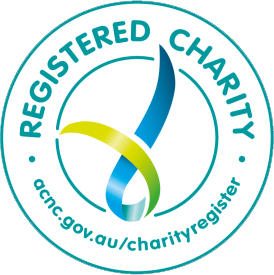
Many People know Ross as the man who leads from the front in the Bike Ride For Brain Cancer. Whether it’s on the bike or fundraising, Ross is always there passionately supporting the Brain Cancer Collective with his family right beside him. Father of 3, Ross was diagnosed with brain cancer in 2013 at the age of 53. Here his wife Di gives her account of what it is like to go through such a traumatic diagnosis and their journey so far.
.
When your loved one is diagnosed with a brain tumour, you have absolutely no idea what is ahead for you and your family. It turns out it is a never-ending journey of appointments, worry and questions.
Brain cancer is one of the worst cancers to get. We all know the horrific statistics that have not changed in over 30 years. We were ‘lucky’ and got a ‘good kind’ of brain tumour, but it is still extremely hard for the patient and the family. Those few that survive can have cognitive issues that are difficult to treat and overcome, and personalities and relationships change forever. The road to wellness is a long one, and we try hard not to worry when or if it might come back.
Ross with his wife Di and son Max at the start of the 2019 Bike Ride For Brain Cancer
Our story started on June 30, 2013 when Ross went out for a bike ride and had a seizure. He was cycling with a friend who was able to get him back home, but we didn’t know what was happening and called the ambulance. At first, the doctors thought it was a stroke, but we found out later that night, something was showing on his CT scan that they would need to investigate further. The next day we were told it was a brain tumour, and we transferred over to another hospital to see the neurosurgeon.
He didn’t have the surgery right away because our son was getting married, so we scheduled the surgery for after the wedding. At first everything was ok, we thought it was benign, and then three weeks after the surgery we got a call from the neurosurgeon to discuss the diagnosis. It was a grade 3 anaplastic oligoastrocytoma and Ross needed additional treatment.
At this point, we had been to two hospitals, a trip in the ambulance to the emergency room, two neurologists, one neurosurgeon and lots of scans/MRIs. We were in a state of shock and just managing to get to the necessary appointments and have the right discussions. We were also trying to keep our small family business going at the time and manage our then 8 year old son.
We were extremely fortunate to have been referred to a medical team that also had one of the few specialist Neuro Oncology Nurse Care Coordinators in Australia. While Ross was going through radiation and then chemotherapy, we would meet, be able to discuss any issues and bring along our long list of questions to ask our team. I remember having to make a call to Marina, our care coordinator, in a state of panic about Ross and his condition and whether I needed to take him to the emergency room. She was able to calmly discuss it with me, and we avoided another trip to the hospital! It was such a relief to have her on the end of the phone and available to us.

It is intensive this brain cancer diagnosis. In seven years our journey so far has included:
1 seizure, 1 ambulance, 1 Emergency Hospital, 1 brain surgery, 23 MRIs, 3 PET scans, 1 CT scan, 1 ECG, 33 radiation cycles, 6 chemo cycles, 17 blood tests, 1 eye test, 4 psychological assessments, 25 cognitive assessment sessions, 5 meditation courses, 4 nutrition reviews, over 112 consultations and 14 months of no driving.
We got through this because of our remarkable team of 3 neurologists, 1 neurosurgeon, 1 nutritionist, 1 clinical psychologist, 1 occupational therapist, 1 psychiatrist, 1 mindfulness expert, 1 med student study, 1 dentist and 1 optometrist.
It takes a lot of resources to manage one brain cancer patient and our need for support is ongoing. Ross has cognitive issues that we continue to deal with on a daily basis and this can be daunting, tiring, confusing and emotional.
As the wife and primary carer of a brain cancer survivor, I am so grateful for the work the Brain Cancer Collective is doing to fund projects like the Brain Cancer Virtual Care Coordination Platform. Using technology to help everyone get access to the support, information and medical advice they need will reduce a lot of stress and uncertainty, allowing them to enjoy the time they have with their loved ones.



